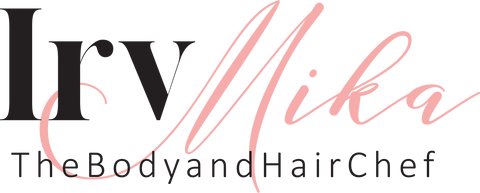
Make Oily Greasy Hair A Thing Of The Past
If you have oily and greasy hair, you're not alone. Many people struggle with this issue. There are a number of reasons why your hair may be oily and greasy.
For example, if you have been using the same shampoo for a long period of time then you may find that your hair has become greasy. Other reasons include excessive sweating, using too much hair conditioner or not washing your hair often enough.
If you are experiencing any of these problems, then it is important that your hair is washed regularly with a paraben free shampoo and followed up by a good all-natural conditioner.
In this blog post, we'll dive deeper into the causes on oily and greasy hair. By understanding the causes, you can take steps to address the problem.
The Causes of Oily and Greasy Hair
The causes of oily hair and greasy hair are usually similar. The main difference between the two is that greasy hair is often the result of an underlying medical condition, while oily hair is not.
Oily and/or greasy hair can derive from many factors. While some people may naturally produce more oil than others, there are many lifestyle and environmental factors that can contribute to oily or greasy hair.
Here are of the most common causes of oily and greasy hair:
- Over-washing. Washing your hair too often can strip away the natural oils that protect your scalp and strands, leading to dryness, irritation, and eventually, overproduction of oil to compensate. Limit washing your hair 2 to 3 times per week maximum.
- Shampooing Improperly. Try using an all-natural shampoo that’s not too harsh for your scalp type, and follow up with a nourishing conditioner. Incorrect shampooing can also disrupt the delicate balance of oil production. Look for gentle, sulfate-free formulas designed for oily scalps – these will cleanse without stripping away vital moisture.
- Hot Humid Weather. Humid conditions cause sweat glands to produce more sebum (oil, which can make hair appear greasier than usual. If you’re prone to sweating during exercise or in hot weather, try showering as soon as possible afterwards to rinse away any excess oil.
- Hormonal changes. Many women find their hair becomes oilier during pregnancy or menopause due to hormonal fluctuations Talk to your doctor if you’re concerned about excessive oiliness during these times; they may be able recommend some treatments or solutions.
- Unfortunately, some people are simply predisposed to having oilier skin and hair due to their genes. If this is the case, you might find that no matter how much you wash or what products you use, your skin and hair still tend towards being on the oilier side.
- Sebum on the Scalp. Sebum is a natural lubricant produced by the sebaceous glands. When there is too much sebum, it can build up on the scalp and cause oily and greasy hair.
Oily and greasy hair can be difficult to manage, but there are some things you can do to help control it. If you have oily and greasy hair, be sure to shampoo regularly and use products that are designed for your specific hair type.

How To Treat Oily Greasy Hair
Knowing the cause of your oily hair can help you determine the best course of treatment. There are a number of ways to treat oily and greasy hair, including washing with special shampoos and conditioners, using dry shampoo, and avoiding certain hairstyles and products that can aggravate the problem.
With some trial and error, you should be able to find the right solution for your oily and greasy hair issue. And by following these tips, you can enjoy healthy and beautiful hair once again!
Oily Hair Treatment Tips:
- Avoid products that have silicone.
- Avoid synthetic chemicals which can cause itching and/or dandruff.
- Use products that contain Aloe Vera.
- After washing, massage your scalp with a good leave-in conditioner.
- All Natural Shampoo. Use an anti-bacterial all natural shampoo.
- Hydrate your scalp with a leave in mist.
- Try Apple Cider Vinegar. Apple cider vinegar will remove build up and restore pH balance.
- Use A Honey Mask. A honey mask can help soothe the scalp.
- Apply Witch Hazel - Witch Hazel can close oil-producing pores and relieve itching.
In conclusion, it is important that you choose the right hair oil or conditioner for your hair type. Make sure that you choose one that contains natural ingredients. If you are unsure about what products to use, then it is important to ask your beautician for advice.

